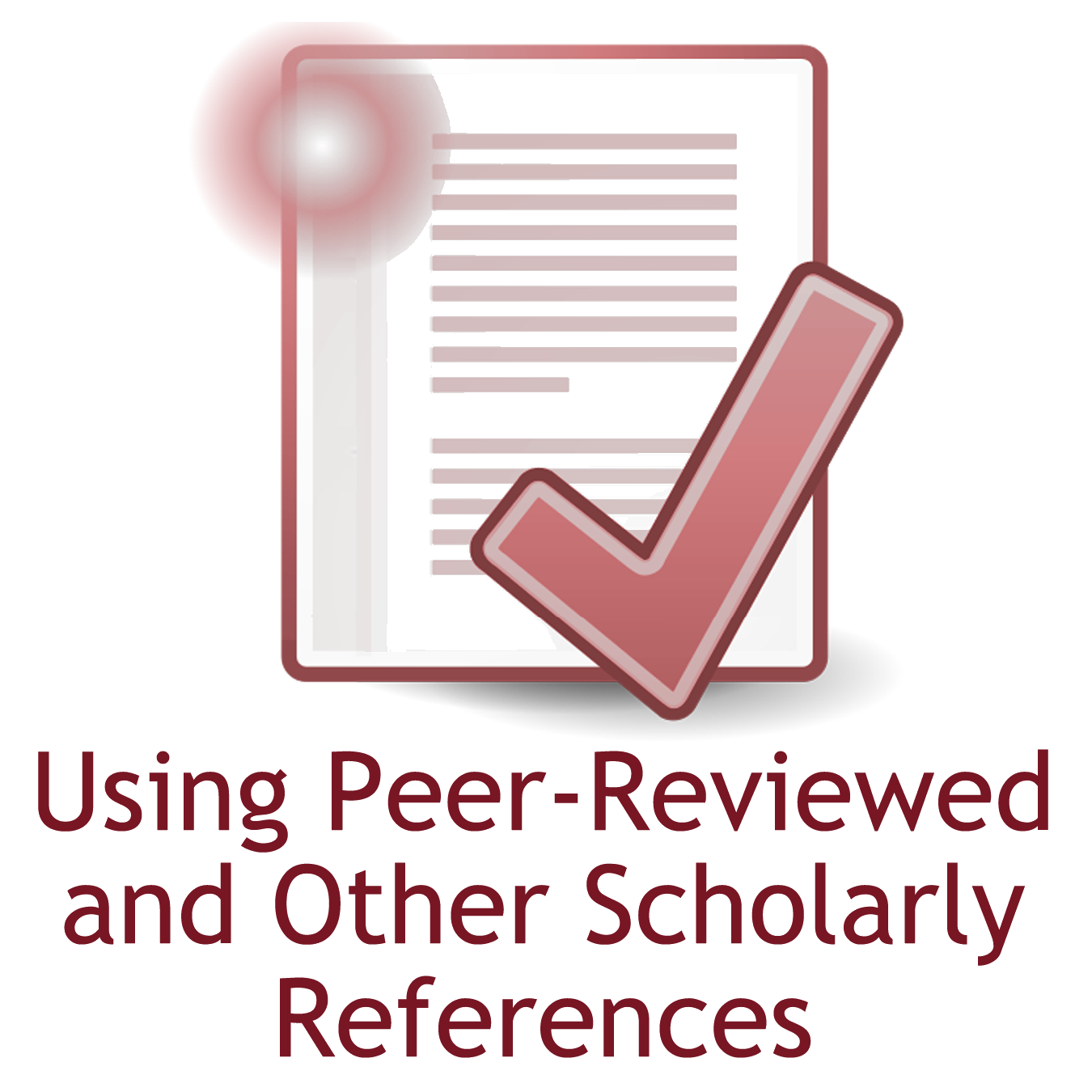

When writing a research paper, there are many different types of sources that you might consider citing. Which are appropriate? Which are less appropriate? Here we discuss the different types of sources that you may wish to use when working on a research paper.
Please note that the following represents a general set of recommended guidelines that is not specific to any class and does not represent department policy. The types of allowable sources may vary by course and instructor.
In general, you should primarily cite peer-reviewed journal articles in your research papers. Peer-reviewed journal articles are research papers that have been accepted for publication after having undergone a rigorous editorial review process. During that review process, the article was carefully evaluated by at least one journal editor and a group of reviewers (usually scientists that are experts in the field or topic under investigation). Often the article underwent revisions before it was judged to be satisfactory for publication.
Most articles submitted to high quality journals are not accepted for publication. As such, research that is successfully published in a respected peer-reviewed journal is generally regarded as higher quality than research that is not published or is published elsewhere, such as in a book, magazine, or on a website. However, just because a study was published in a peer-reviewed journal does not mean that it is free from error or that its conclusions are correct. Accordingly, it is important to critically read and carefully evaluate all sources, including peer-reviewed journal articles.
Tips for finding and using peer-reviewed journal articles:
Another potential source that you might use when writing a research paper is a book, encyclopedia, or an official online source (such as demographic data drawn from a government website). When relying on such sources, it is important to carefully consider its accuracy and trustworthiness. For example, books vary in quality; most have not undergone any form of review process other than basic copyediting. In many cases, a book’s content is little more than the author’s informed or uninformed opinion.
However, there are books that have been edited prior to publication, as is the case with many reputable encyclopedias; also, many books from academic publishers are comprised of multiple chapters, each written by one or more researchers, with the entire volume carefully reviewed by one or more editors. In those cases, the book has undergone a form of peer review, albeit often not as rigorous as that for a peer-reviewed journal article.
Tips for using books, encyclopedias, and other scholarly works:
Most research papers can be written using only peer-reviewed journal articles as sources. However, for many topics it is possible to find a plethora of sources that have not been peer-reviewed but also discuss the topic. These may include articles in popular magazines or postings in blogs, forums, and other websites. In general, although these sources may be well-written and easy to understand, their scientific value is often not as high as that of peer-reviewed articles. Exceptions include some magazine and newspaper articles that might be cited in a research paper to make a point about public awareness of a given topic, to illustrate beliefs and attitudes about a given topic among journalists, or to refer to a news event that is relevant to a given topic.
Tips for using magazines, blogs, and websites:
How-To Videos
Databases and Search Engines (may require connection to UCSD network)
UCSD Resources on Finding and Evaluating Sources
External Resources
UC San Diego 9500 Gilman Dr. La Jolla, CA 92093 (858) 534-2230
Copyright © 2023 Regents of the University of California. All rights reserved.